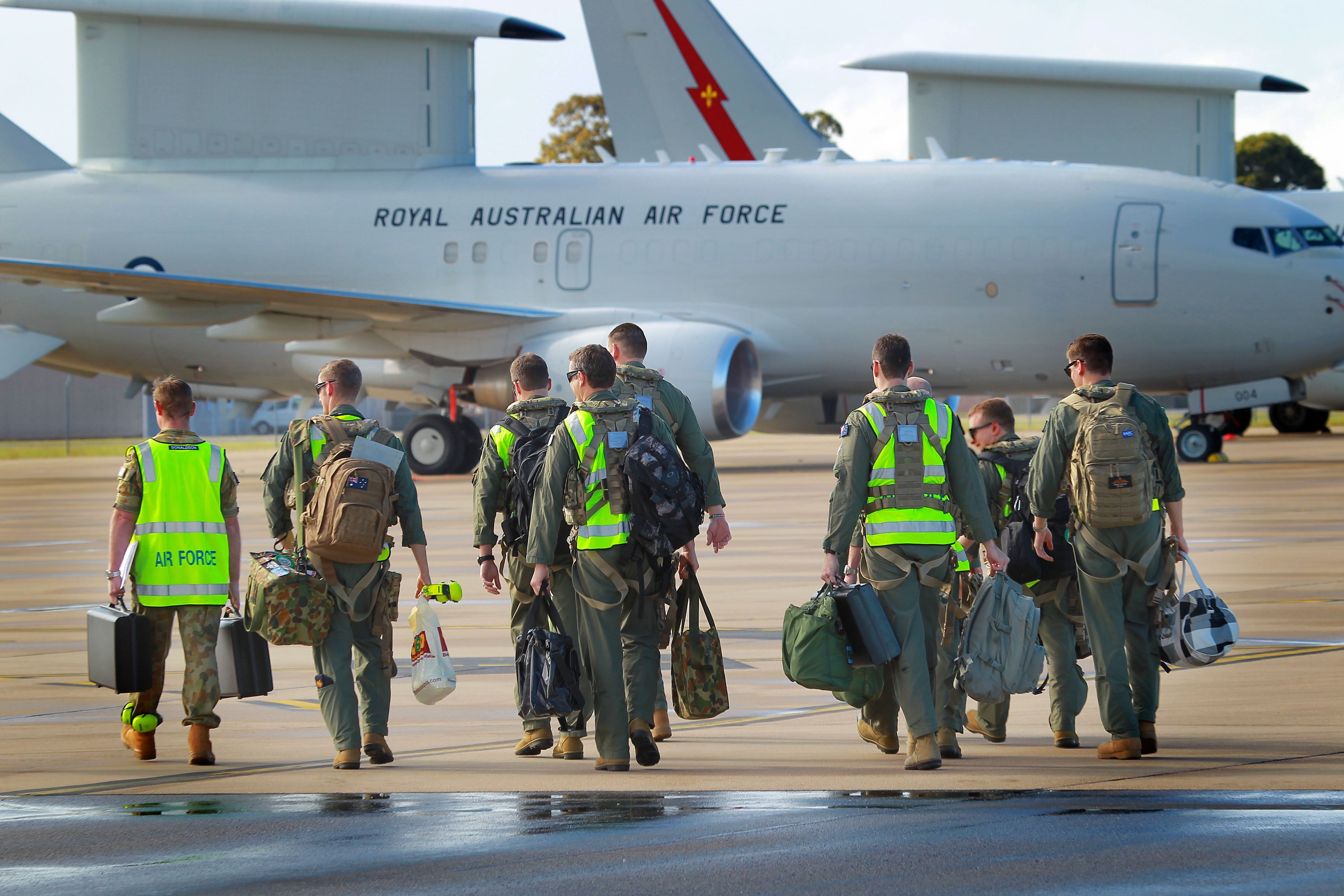NATO to buy more ‘eyes in the sky’ planes to monitor Putin’s war on Ukraine
NATO has opted to buy six new E-7A Wedgetail surveillance planes built by U.S. aircraft manufacturer Boeing as it looks to update its eyes in the sky in coming years

Your support helps us to tell the story
From reproductive rights to climate change to Big Tech, The Independent is on the ground when the story is developing. Whether it's investigating the financials of Elon Musk's pro-Trump PAC or producing our latest documentary, 'The A Word', which shines a light on the American women fighting for reproductive rights, we know how important it is to parse out the facts from the messaging.
At such a critical moment in US history, we need reporters on the ground. Your donation allows us to keep sending journalists to speak to both sides of the story.
The Independent is trusted by Americans across the entire political spectrum. And unlike many other quality news outlets, we choose not to lock Americans out of our reporting and analysis with paywalls. We believe quality journalism should be available to everyone, paid for by those who can afford it.
Your support makes all the difference.NATO announced Wednesday it has opted to buy six new E-7A Wedgetail surveillance planes built by U.S. aircraft manufacturer Boeing as the 31-nation military alliance looks to update its eyes in the sky in coming years.
NATO’s fleet of 14 Airborne Warning and Control System, or AWACS, aircraft are outdated and expensive to maintain. But their large fuselage-mounted radar domes can detect aircraft hundreds of miles away and they remain useful to monitor Russia’s war on Ukraine from NATO’s eastern flank.
NATO said that production of the six new Wedgetails — a militarized version of the Boeing 737 jetliner — will begin “in coming years,” with the first planes expected to be ready for duty by 2031. No cost was provided for the planes, but based on U.S. and U.K. contract information the price could hit $5 billion.
NATO’s contract with Boeing — one of the military organization’s biggest ever purchases — is set to be signed next year.
“Surveillance and control aircraft are crucial for NATO’s collective defense,” NATO Secretary-General Jens Stoltenberg said in a statement announcing the move. “By pooling resources, Allies can buy and operate major assets collectively that would be too expensive for individual countries to purchase."
Apart from the AWACS aircraft and a small fleet of surveillance drones, NATO as an organization does not own any military equipment. The allies themselves provide materiel for its operations. The U.S., U.K. and Turkey — all NATO members — either fly the Wedgetail separately or plan to operate it.

Australia also uses Wedgetails and has made one available for use along NATO’s eastern flank.
Equipped with powerful radar, the planes provide situational awareness about aircraft and missile movements for hundreds of miles. They can detect hostile activity in the air or from ships and are able to direct NATO fighter jets to their targets.
The E-7A fleet is expected to have its main base at Geilenkirchen in Germany and Wedgetails could operate from several forward locations across Europe.

The outgoing Boeing E-3s were purchased in 1977 at the height of the Cold War, when Jimmy Carter became U.S. president and as a missile crisis with the Soviet Union was festering. They are continually being refurbished so they can keep flying until 2035.
Some were deployed in U.S. skies after the Sept. 11, 2001 attacks to help protect cities and nuclear power plants. They can also be used for air policing, evacuation operations and to provide help during natural disasters.